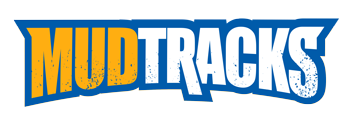When it comes to hunting, having the right equipment is crucial for success. One of the most important tools for any hunter is a high-quality hunting scope. A hunting scope allows you to magnify your target and improve your accuracy, making it an essential accessory for any serious hunter. However, with so many options available on the market, selecting the right hunting scope can be a daunting task.
When it comes to selecting the right hunting scope, there are several factors to consider. One important aspect to keep in mind is the magnification power of the scope. It's crucial to choose a scope that offers sufficient magnification for your specific hunting needs. For long-range shooting, a higher magnification power may be necessary, while for close-quarters hunting, a lower magnification power may be more suitable.
Another crucial factor to consider is the objective lens diameter of the scope. The size of this lens determines how much light enters the scope and ultimately affects image brightness and clarity. A larger objective lens diameter allows more light into the scope, leading to brighter and clearer images, especially in low-light conditions.
Additionally, it's essential to choose a hunting scope with appropriate reticle options. Different reticle types and designs offer various advantages depending on your hunting style and preferences. Some popular reticle options include duplex reticles for general-purpose use or specialized BDC (Bullet Drop Compensator) reticles designed for long-range shooting.
Ultimately, when selecting the right hunting scope, it's vital to consider these factors carefully and balance them according to your specific needs as a hunter.
To help you make an informed decision, here are a few key factors to consider:
1. Magnification
The first thing to consider when choosing a hunting scope is the magnification power. The magnification determines how much the image will be enlarged. For hunting, it is recommended to choose a scope with variable magnification, such as 3-9x or 4-12x. This range allows you to zoom in for precise shots at longer distances and zoom out for a wider field of view when needed.
2. Objective Lens Size
The size of the objective lens is another important factor to consider. The objective lens gathers light and transmits it to your eye, which affects the brightness and clarity of the image. Generally, larger objective lenses provide better light transmission, resulting in brighter images. However, keep in mind that larger lenses also add weight and bulk to your rifle, so choose a size that balances your need for brightness and portability.
3. Reticle Type
The reticle, or crosshair, is another crucial element of a hunting scope. There are various reticle types available, including simple duplex, mil-dot, and BDC (bullet drop compensator) reticles. The type of reticle you choose will depend on your personal preference and the type of hunting you do. For example, a BDC reticle can be beneficial for long-range shooting, while a simple duplex reticle is suitable for general hunting purposes.
4. Durability
When selecting a hunting scope, durability is of utmost importance. You need a scope that can withstand the harsh outdoor conditions and recoil from your rifle. Look for scopes that are shockproof, waterproof, and fog-proof. Additionally, opt for scopes made from high-quality materials like aircraft-grade aluminum or magnesium alloy, which offer excellent durability without adding unnecessary weight.
5. Budget
Lastly, consider your budget when choosing a hunting scope. While it's important to invest in a high-quality scope, you don't want to break the bank. Set a budget and look for scopes that offer the best features within your price range. Remember, a good hunting scope is an investment that will enhance your hunting experience and improve your accuracy.
By considering these key factors – magnification, objective lens size, reticle type, durability, and budget – you can narrow down your options and select the right hunting scope that suits your needs. Remember to research and read reviews before making a purchase, as this will help you make an informed decision. Happy hunting!



